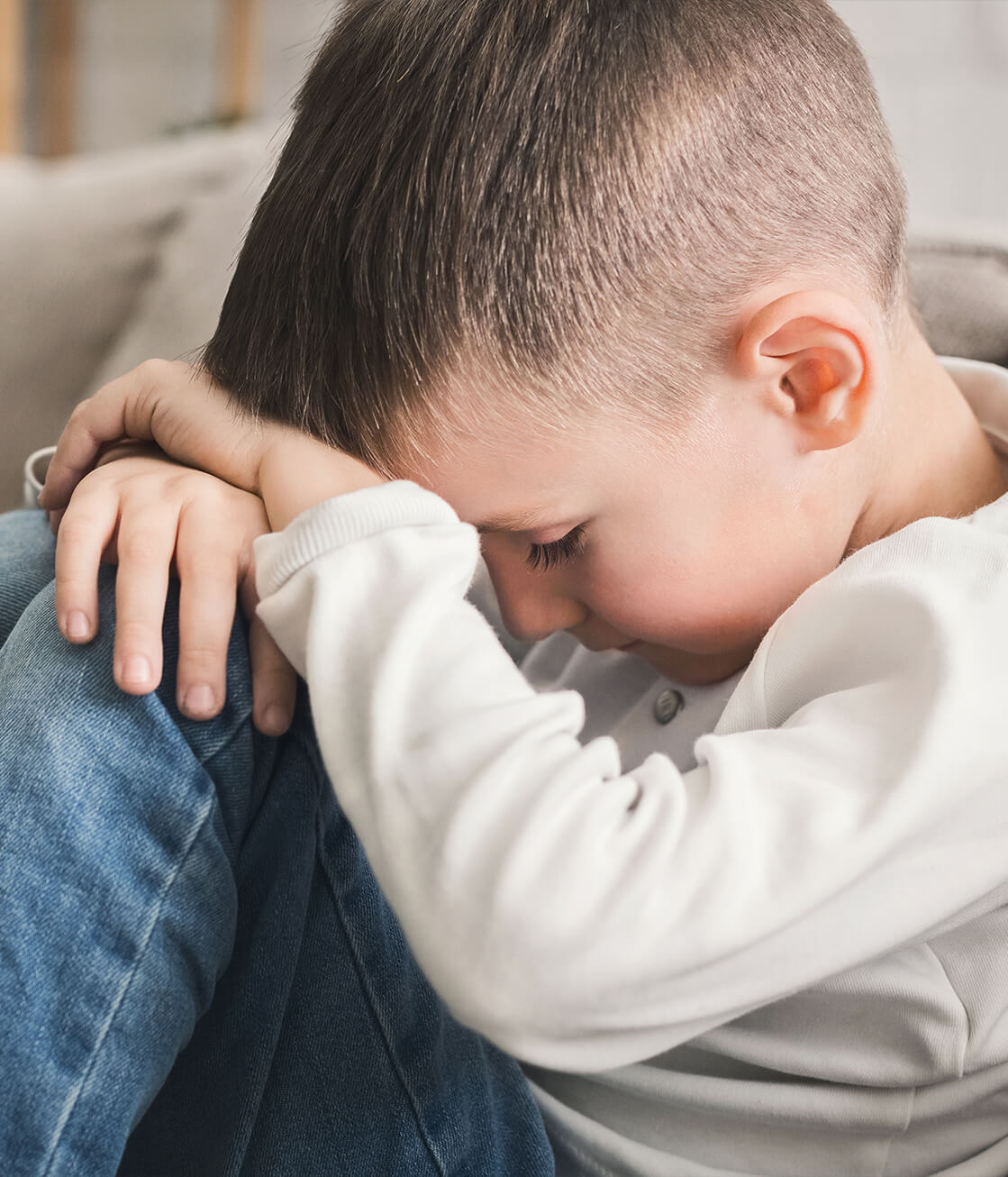Impact of Adoption
Child abuse needs to stop and education is the key.
The following free resources are essential to driving change and
are made possible through your contributions, thank you.

LIFELONG IMPACT OF ADOPTION
Adoption affects adoptees, birth parents, and adoptive parents and other birth and family members throughout life. The adoption experience can contribute to feelings of loss and grief, questions about self-identity, or a lack of information about their medical background.
However, adoption whether formal or informal, has always been a superior method of assuring survival for children whose parents are unwilling or unable to care for them.
Adoption can affect child development in profound ways. Data collected from studies over the past three decades, supports adoption as a superior means of promoting normal development in children permanently separated from birth parents.
Out of calamity and loss, children recover and progress to become functionally and emotionally competent adults. For children suffering severe neglect or abuse in early life, an adoptive family is a remarkable environment for healing emotional and physical trauma and reversing developmental deficits.
Adopted persons generally lead lives that are very similar to their non-adopted peers, however, they have experiences that are unique to being adopted, and these experiences may have an impact at different points in their lives.
The increasing occurrence of open adoption— and therefore the increased contact adopted persons have with their birth families— has dramatically affected the issues faced by adopted persons over the past two decades. Whereas adopted persons from a past era may have more frequently dealt with issues of secrecy and large gaps in information, persons adopted recently may more often be faced with issues related to having contact with their birth parents. Additionally, the internet allows for greater access to widespread information and resources, which can greatly aid them in discovering information about their birth families or finding resources for support and encouragement.
DEALING WITH POSSIBLE POST-ADOPTION ISSUES

LOSS AND GRIEF
The loss of birth parents as a result of adoption may set the stage for feelings of grief for many adopted persons. The loss experienced by adopted persons may be characterized as ambiguous loss, or the loss of someone who still is (or who may be) alive. This type of loss also may increase the feelings of uncertainty (e.g., “Do I resemble my biological parents?”) an adopted person feels. Adopted persons who feel secure in their adoption and have open adoptive family communication may be better able to manage their uncertainty and grief. Additionally, adopted persons may have difficulty finding an outlet because their grief may not be recognized by others.
Feelings of loss and grief, as well as anger, anxiety, or fear, may especially occur during emotionally charged milestones, such as marriage, the birth of a child, or the death of a parent. Adopted persons may also suffer secondary losses. For instance, along with the loss of their birth mother and birth father, adopted persons may experience the loss of brothers and sisters, grandparents, aunts and uncles, and cousins. There also may be a loss of cultural connection or language (in cases of intercountry or transracial adoption). For those who were adopted as older children, there may be a loss of friends, foster families, pets, schools, neighborhoods, and familiar surrounding
Identity Development
Identity formation begins in childhood and takes on increased importance and prominence during adolescence. Adoption is a significant aspect of identity for adopted persons, even when they are adults. The task of identity development may be more difficult for an adopted person because of the additional issues related to adoption, such as why he or she was placed for adoption, what became of the birth parents, does he or she have siblings, and whether he or she resembles the birth parents in looks or in other characteristics.
Adoption remains an important aspect of identity throughout adulthood, and one study described the development of adult adoptive identity as having five phases:
- No awareness/denying awareness: The adopted person does not overtly acknowledge adoption issues.
- Emerging awareness: The adopted person views adoption as a positive influence and recognizes some issues, but he or she is not ready to explore these issues.
- Drowning in awareness: The adopted person has feelings of loss, anger, and sadness about the adoption.
- Reemerging from awareness: The adopted person recognizes the issues related to the adoption, but also sees the positive aspects and is working toward acceptance.
- Finding peace: The adopted person has worked through his or her issues with the adoption and is moving toward peace and acceptance


Self Esteem
Often accompanying these issues of identity are issues of self-esteem—that is, how the adopted person feels about him or herself. A number of studies have found that, while adopted persons are similar to non adopted persons in most ways, they often score lower on measures of self-esteem and self confidence. This result may reflect the fact that some adopted persons may view themselves as different, out-of-place, unwelcome, or rejected. Some of these feelings may result from the initial loss of birth parents and from growing up away from birth parents, siblings, and extended family members.
They also may be caused by an ongoing feeling of being different from non adopted people who know about their genetic background and birth family and who may be more secure about their own identity as a result. Additionally, some adopted persons report that secrecy surrounding their adoption contributes to low self-esteem.
Thinking About The Adoption
The amount and degree of thought an adopted person devotes to his or her adoption may change over time and may vary based on each person’s circumstances. For example, the birth of a child to an adopted person, which may be the first experience with a biological family member, may cause the adopted person to revisit earlier issues of identity. The new parent may also be prompted to think about what his or her birth mother experienced in giving birth and what the birth mother and father may have experienced in making the adoption placement decision.
Adopted adults who become new parents may be sympathetic to the difficulties of their birth parents, or they may wonder how their birth parents could ever have placed them for adoption. In a study of adopted adolescents’ thinking about adoption, 13 percent never thought about adoption, 54 percent thought about their adoption once a month or more, and 27 percent thought about their adoption once a week or more, with males thinking about their adoption more frequently than females. Adolescents in closed adoptions were no more likely to have increased frequency of thought about their adoption than those in open adoptions.

Genetic Information
Adopted persons often lack birth family genetic and medical history. This information can be vitally important to the diagnosis and treatment of genetically based medical condition. In addition, being asked to supply medical history information at a doctor’s appointment may make adopted persons acutely aware of how they differ from those who were not adopted. Finding out later in life that they were adopted as infants puts adopted persons at risk of misdiagnoses or other medical issues due to their long-held assumption of a family medical history that they later find is incorrect. Additionally, when adopted persons plan to get married or become a parent, they may want to know about genetic characteristics their children may inherit. In many cases, nonidentifying information, such as medical history, may be placed in the adoption file by the birth parents or agency at the time of the adoption. Adopted persons are allowed access to this nonidentifying information, which is usually at least as old as the adopted person.
In some States, adopted persons can petition a judge to have their adoption records opened, and some judges will agree to do so in order to provide urgently needed medical information. However, obtaining access to information provided by the birth parents at the time of the adoption may not be sufficient to provide a full medical history. For example, a birth parent, sibling, or grandparent may later develop or be diagnosed with a genetic disease or condition. It is more useful if birth parents regularly update the file that is kept with the adoption agency or attorney. Additionally, those in open adoptions may be able to get this information directly from their birth parents.

Other Behavioral Issues
Research on the mental health of adopted adults shows there is a divide about whether adopted adults’ psychological well-being is comparable to their non-adopted peers. Many studies report that adopted adults have a higher degree of mental health issues, but some researchers view these differences as minor while others view them as substantial. Additionally, the studies are not always in agreement about what the differences are. For example, some studies cite higher rates of depression among adopted individuals than their non–adopted peers, while others have found similar levels of depression within both groups.
Even with the split in research conclusions about adopted adults’ psychological well-being, most of the literature points to adopted adolescents and adults being more likely to receive counseling than their non adopted peers. Studies comparing adopted persons to their non-adopted peers also indicate that adopted adults have similar rates of suicide ideation and attempts, that adopted adolescents have similar rates of antisocial behaviors, and that adopted persons are at an increased risk of substance use disorders during their lifetime.
Late Discovery
Adopted persons who find out their adoption status later in life often call themselves an LDA (for Late Discovery Adoptee).
Responses may include anger directed toward the adoptive parents, depression, and issues with trust in other close relationships.
Managing Other Adoption Issues
Counseling
Some adopted persons may need more help than they find from family and friends or through a support group. In these instances, adopted persons may seek professional counseling. Many mental health practitioners report not having enough training in adoption-related issues, so it is important for adopted adults to find a counselor who has the requisite skills, knowledge, and outlook. Also, support groups may have experience with local counselors and be able to make a recommendation.
Support Groups
There is significant research that suggests that many adopted persons struggle with issues such as grief, loss, identity development, and self-esteem. Many adopted persons are helped by support groups in which they can talk about their feelings with others who have similar experiences. The support group may provide a long-needed outlet for any lingering feelings related to the adoption, such as loss or grief. In addition, support groups may provide help with the decision of whether to search for birth relatives.
Education
For many adopted persons, learning about the experiences of others, whether through first-person accounts or through adoption research, can be a helpful coping mechanism. There are an ever-increasing number of books, articles, videos, and websites (including blogs) that focus on a wide range of adoption-related topics. Adopted persons may be reassured discovering that others who have gone through similar experiences have had similar reactions.
The abuse may be brief, but the trauma lasts a lifetime.
Kids’ lives and futures are on the line!
Be the voice against neglect and contribute to end child maltreatment today.
Positive Parenting Support,
At the click of a button.
Previous Section
Parenting Resource Center
Impact of Adoption
Next Section
